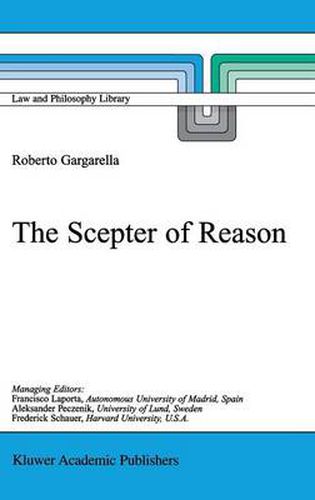Readings Newsletter
Become a Readings Member to make your shopping experience even easier.
Sign in or sign up for free!
You’re not far away from qualifying for FREE standard shipping within Australia
You’ve qualified for FREE standard shipping within Australia
The cart is loading…






This title is printed to order. This book may have been self-published. If so, we cannot guarantee the quality of the content. In the main most books will have gone through the editing process however some may not. We therefore suggest that you be aware of this before ordering this book. If in doubt check either the author or publisher’s details as we are unable to accept any returns unless they are faulty. Please contact us if you have any questions.
It is not unusual that formal and informal discussions about the political system, its virtues, and its many defects, conclude in a discussion about impartiality. In fact, we all discuss impartiality when we talk about the best way to equally consider all viewpoints. We show our concerns with impartiality when, facing a particular problem, we try to figure out the best solution for all of us, given our conflicting interests. Thus, the quest for impartiality tends to be a common objective for most of us, although we normally disagree on its particular contents. Generally, these formal and informal discussions about impartiality conclude in a dispute between different epistemic conceptions. That is to say, simply, that in these situations we begin to disagree about best procedure to defme the more neutral, impartial solution for all of us.! Basically, trying to answer this question we tend to fluctuate between two opposite positions. According to some, the best way to know which is the more impartial solution is to resort to a process of collective reflection: in those situations we have to consider the opinions of all those who are possibly affected.
$9.00 standard shipping within Australia
FREE standard shipping within Australia for orders over $100.00
Express & International shipping calculated at checkout
This title is printed to order. This book may have been self-published. If so, we cannot guarantee the quality of the content. In the main most books will have gone through the editing process however some may not. We therefore suggest that you be aware of this before ordering this book. If in doubt check either the author or publisher’s details as we are unable to accept any returns unless they are faulty. Please contact us if you have any questions.
It is not unusual that formal and informal discussions about the political system, its virtues, and its many defects, conclude in a discussion about impartiality. In fact, we all discuss impartiality when we talk about the best way to equally consider all viewpoints. We show our concerns with impartiality when, facing a particular problem, we try to figure out the best solution for all of us, given our conflicting interests. Thus, the quest for impartiality tends to be a common objective for most of us, although we normally disagree on its particular contents. Generally, these formal and informal discussions about impartiality conclude in a dispute between different epistemic conceptions. That is to say, simply, that in these situations we begin to disagree about best procedure to defme the more neutral, impartial solution for all of us.! Basically, trying to answer this question we tend to fluctuate between two opposite positions. According to some, the best way to know which is the more impartial solution is to resort to a process of collective reflection: in those situations we have to consider the opinions of all those who are possibly affected.